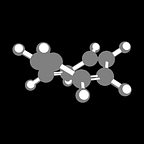The Nerdiest Holiday Ever
The Avogadro Hypothesis unified the chemistry world and gave birth to a holiday
I know what you’re thinking: “The Avogadro Hypothesis” sounds like a Robert Ludlum book…wait — you don’t know who Robert Ludlum is? He did all the Jason Bourne novels! He put Matt Damon on the map as an action hero! Ugh, we’ll have to get into this later…
Understanding what’s so important about this man and his hypothesis involves transporting our minds back in time. Even what the layman knows about chemistry now from birth is not what was known back then — you’ll see this come up many times in this story. Context is important for everything, but even more so when talking about the birth of a science.
Centered around this birth of chemistry is the idea of elements — the most fundamental aspect of a substance, an element cannot be purified any further. At the very beginning of chemistry (if you could really even call it that), everyone accepted that there were only 4 elements: earth, wind (or air), water, and fire. There were several ancient Greeks that threw these around, but the first to codify them as elements was Aristotle (no, not Big Aristotle aka Shaquille O’Neal). The belief that the world was composed of 4 elements persisted for quite some time, unfortunately.
It wasn’t until the 17th century when some endeavoring scientists came to their senses and started isolating different chemicals from things like tree bark (earth) and different gases from air. Finally, near the end of the 18th century, the 4 elements were put to bed as it became generally accepted that air is not composed of just one gas.
See? That is one thing even a layman knows essentially from birth nowadays, but even scientists were just starting to agree on it just 200 years ago.
Experiments on air were so popular around this time that these researchers were dubbed “the pneumatic chemists.” In fact, the word “gas” had just been invented and was starting to be used; instead, people just used the word “air” or “airs.” Again, this context is necessary to help drive home the fact that what we know now is not what was known then. Hydrogen wasn’t even known as hydrogen at first — it was called “inflammable air.” Carbon dioxide was called “fixed air,” and oxygen was called “dephlogisticated air” (don’t get me started on phlogiston).
